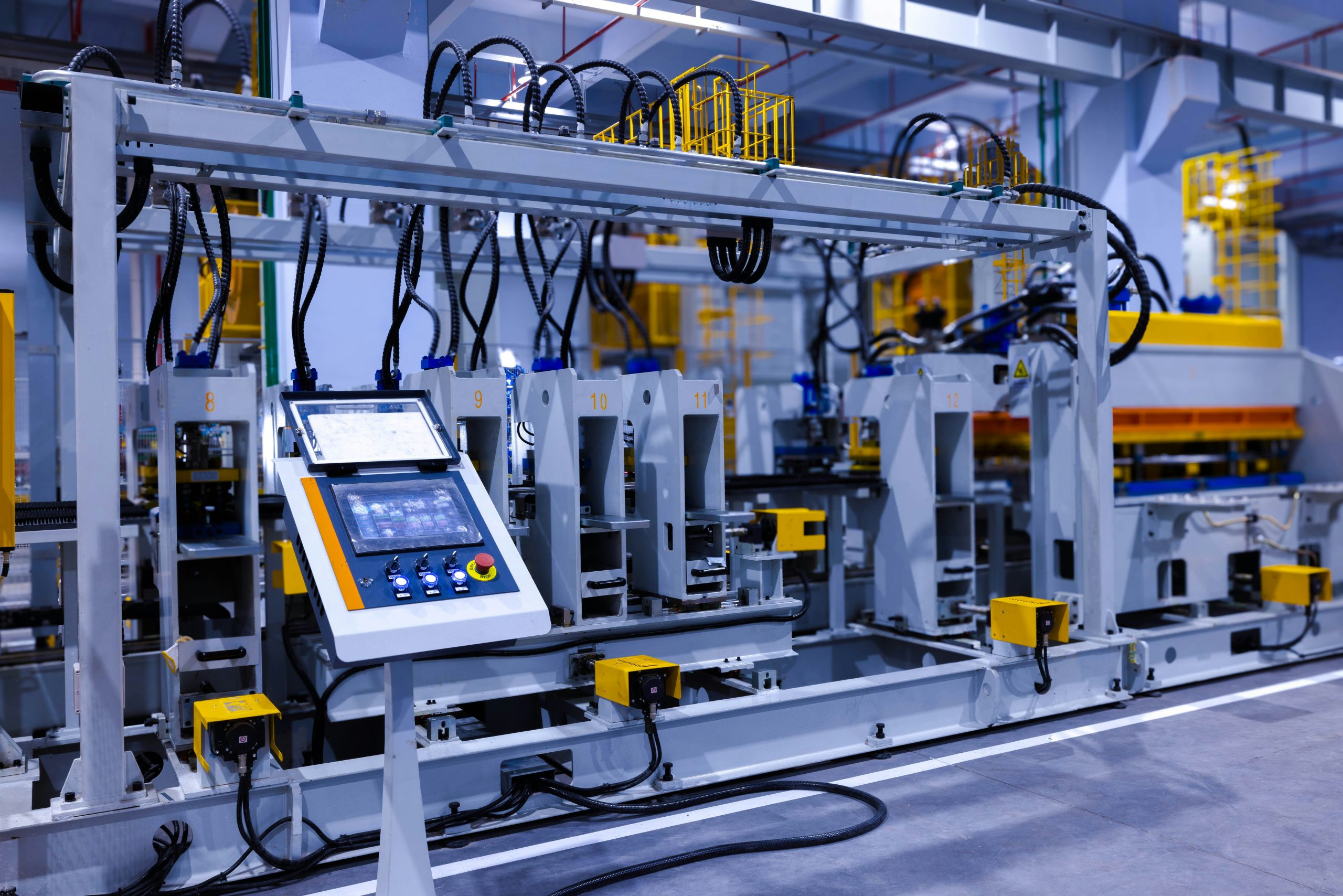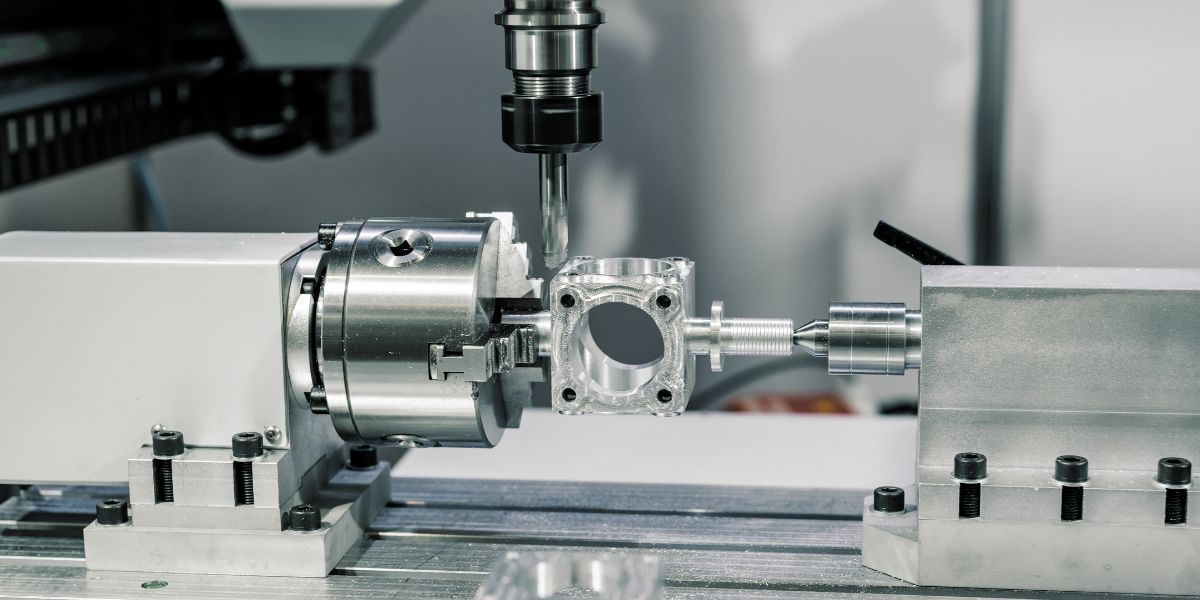Why hiring a tool and die maker is crucial for precise parts
Wiki Article
Elevate Your Manufacturing High Quality With Expert CNC Machining Providers in Milling and Transforming
CNC machining solutions in milling and turning deal substantial advantages for manufacturing operations. These procedures assure precision and performance, essential for generating high-grade parts. With sophisticated technology and proficient machinists, companies can attain exceptional coatings and detailed layouts. Nevertheless, recognizing the subtleties of these solutions is vital for maximizing their advantages. What variables should firms consider when selecting the right CNC machining partner?Recognizing CNC Machining and Its Benefits
Many producing processes exist, CNC machining stands out due to its precision and performance. This innovative production strategy makes use of computer-controlled machines to produce complex parts with minimal human treatment. By automating the machining procedure, it greatly lowers the probability of human mistake, making sure consistent quality throughout manufacturing runsCNC machining supplies numerous advantages that attract various markets. To start with, it accommodates intricate designs that conventional approaches may struggle to achieve. Additionally, the rate of production is boosted, enabling quicker turnaround times and increased result. Furthermore, CNC machining is flexible, suitable for a variety of materials, including plastics, composites, and metals.
Furthermore, the process permits very easy changes, allowing rapid prototyping and customization without comprehensive retooling. Therefore, businesses can respond promptly to market demands, making CNC machining a crucial part of modern-day manufacturing approaches.

The Importance of Precision in Milling Processes
Accuracy is essential in milling procedures, as it directly influences the precision of the end product. The option of products additionally plays a significant function, impacting exactly how well the machining process fulfills defined tolerance standards. Comprehending these aspects is important for achieving suitable outcomes in CNC machining.Role of Precision
Accomplishing high levels of precision is critical in grating procedures, as also the smallest inconsistency can cause substantial errors in the last item. Precision in CNC machining directly affects the performance, functionality, and long life of the produced components. Accurate milling warranties that measurements and resistances are satisfied, which is essential for components that need to fit with each other seamlessly in assembly or run under particular conditions. Additionally, the function of accuracy extends to decreasing waste and revamp, thereby improving general manufacturing effectiveness. Advanced CNC devices equipped with sophisticated software and tooling add to obtaining the essential accuracy. By focusing on precision in milling, suppliers can ensure premium outcomes that satisfy rigorous market standards and client expectations.
Material Option Effect
Product choice plays an essential role in the milling procedure, affecting both the high quality of the last product and the effectiveness of production. Different materials display unique properties such as firmness, tensile toughness, and machinability, which directly affect the milling strategy used. For example, more challenging materials may call for specialized tools and slower feed rates to avoid device wear and maintain precision. On the other hand, softer products can be grated at higher speeds however may do not have toughness. In addition, the choice of product can impact surface area finish and dimensional accuracy, necessitating careful consideration by manufacturers. Ultimately, selecting the ideal material not just improves item performance but additionally optimizes the milling process, decreasing waste and enhancing general efficiency.Resistance Specifications Value
While the choice of products is essential, adherence to resistance requirements is just as important in CNC machining procedures. Tolerance requirements dictate the acceptable limits of variation in measurements, making certain components fit and operate appropriately. In milling and transforming operations, accurate tolerances improve item high quality, minimize waste, and lessen rework. When resistances are precisely preserved, manufacturers can attain constant outcomes, which is vital for industries such as aerospace, vehicle, and medical devices, where precision is paramount. Inconsistencies from established standards can lead to assembly problems, endangered performance, and increased expenses. Consequently, understanding and applying correct resistance standards is fundamental for any CNC machining service looking for to keep high manufacturing high quality and meet customer requirements effectively.Enhancing Efficiency With Advanced CNC Turning
Advanced CNC transforming methods substantially boost performance in component production by making certain high accuracy in manufacturing. This boosted precision not just enhances the general top quality of the components created however also contributes to minimized manufacturing time. As an outcome, suppliers can accomplish higher result while keeping rigid top quality criteria.Accuracy in Component Creation
CNC transforming innovation has revolutionized accuracy in component creation, making it possible for makers to achieve outstanding accuracy and effectiveness. Utilizing computer-controlled lathes, this sophisticated procedure diligently shapes products into elaborate layouts, guaranteeing tight resistances that fulfill requiring requirements. The automation fundamental in CNC turning lessens human error, causing regularly high-quality parts tailored to certain requirements. Additionally, the ability to quickly change digital styles allows for quick iterations, boosting the personalization of components without sacrificing accuracy. As a result, markets ranging from aerospace to auto benefit greatly from these developments, as they can generate complicated geometries with simplicity. Inevitably, CNC turning stands as a cornerstone of contemporary production, driving accuracy and reliability in part development.Reduced Production Time

Secret Technologies in CNC Machining
Various essential modern technologies drive the efficiency and accuracy of CNC machining, making it possible for producers to produce intricate parts with high precision. Central to these developments are Computer system Aided Layout (CAD) and Computer Helped Manufacturing (WEB CAM) software, which streamline the design-to-production procedure. CAD permits for elaborate layouts to be developed and adjusted digitally, while webcam translates these layouts into equipment directions.Even more improving accuracy are multi-axis machining facilities, which make it possible for reducing tools to move along several axes at the same time, lowering the demand for several configurations - cnc milling services near me. Furthermore, innovations in tooling products and finishings have actually boosted durability and performance, permitting for much better surface area finishes and prolonged device life
Automation modern technologies, including robotics and smart software application, facilitate real-time monitoring and changes throughout production, making certain consistency and top quality. Collectively, these modern technologies not just improve production capacities however additionally add to the general integrity of CNC machining services.
The Function of Competent Machinists in High Quality Manufacturing
Knowledgeable machinists play a necessary function in making sure the high quality and precision of CNC machining production. Their expertise straight impacts the result of producing procedures, as they analyze technological illustrations, established up makers, and select appropriate devices for each and every project. By possessing a deep understanding of machining principles, they can make real-time adjustments to optimize efficiency and maintain limited tolerances.Furthermore, proficient machinists employ their analytic abilities to identify and rectify problems during manufacturing, making certain and protecting against issues that the end products satisfy rigid top quality criteria. Their knowledge with different materials and machining strategies enables them to adapt to diverse task needs, boosting total effectiveness
On top of that, these professionals frequently collaborate with developers and designers, providing beneficial understandings that add to the continual improvement of manufacturing techniques. Eventually, the importance of proficient machinists in CNC machining can not be overemphasized, as they create the backbone of top notch manufacturing procedures.
Reducing Waste and Optimizing Resources
Reliable CNC machining not just depends on the competence of proficient machinists yet also stresses the significance of lowering waste and enhancing sources throughout the manufacturing procedure. By employing advanced innovations and exact programming, makers can lessen product waste, making certain that every piece of raw product is utilized effectively.Integrating approaches such as nesting, where parts are set up to take full advantage of material usage, can especially decrease scrap manufacturing. Furthermore, real-time surveillance of device efficiency allows for instant changes, avoiding overflow and resource exhaustion.
In addition, applying sustainable methods, such as recycling metal shavings and making use of eco-friendly materials, adds to both cost savings and environmental obligation.
With these steps, CNC machining services can enhance productivity while keeping top quality requirements, eventually resulting in an extra successful and sustainable procedure. By prioritizing resource optimization, services can attain higher performance and a lowered environmental footprint in their manufacturing procedures.
Choosing the Right CNC Machining Solution for Your Demands
How does tool and die maker one determine the most effective CNC machining service for particular project demands? Selecting the appropriate CNC machining solution involves several important factors to consider. Job specifications, consisting of product types, dimensions, and resistances, should be plainly defined. This guarantees that the picked service can fulfill the technological demands of the task.Second, examining the provider's experience and experience in the pertinent industry can give insights right into their abilities. Analyzing previous tasks and client endorsements can better educate the decision.
Third, evaluating the available technology and machinery is crucial, as advanced devices commonly leads to higher precision and effectiveness.
Price and turn-around time need to be taken into consideration to assure the solution lines up with monetary restraints and deadlines. By thoroughly assessing these aspects, organizations can identify the CNC machining solution that best fits their distinct manufacturing demands.
Regularly Asked Questions
What Products Can Be Utilized in CNC Machining?
CNC machining can make use of a variety of materials including metals like steel, light weight aluminum, and titanium, in addition to plastics such as acrylic and nylon, and compounds, giving versatility for different production applications and markets.Exactly how Long Does a Typical CNC Machining Project Take?
A regular CNC machining job can take anywhere from a few days to a number of weeks, depending upon elements such as complexity, product kind, layout requirements, and manufacturing volume. Timelines vary based on project requirements and urgency.Are CNC Machining Services Environmentally Friendly?
CNC machining solutions can be eco-friendly, specifically when making use of lasting products and efficient procedures. Waste decrease and energy-efficient machinery add to a reduced ecological effect, making these services a practical option for eco-conscious manufacturing.What Industries Commonly Utilize CNC Machining Services?
CNC machining solutions are typically utilized in numerous industries, consisting of auto, aerospace, electronic devices, medical tools, and manufacturing. These sectors rely upon accuracy machining for parts that need high precision, efficiency, and repeatability in manufacturing procedures.How Can I Prepare My Styles for CNC Machining?
To prepare layouts for CNC machining, one ought to ensure appropriate documents layouts, optimize measurements for tolerance, incorporate required machining features, and consider product properties. In addition, offering thorough paperwork can improve the production process's effectiveness and precision.While the selection of products is vital, adherence to resistance standards is equally important in CNC machining procedures. Competent machinists play a crucial role in ensuring the quality and accuracy of CNC machining manufacturing. A typical CNC machining project can take anywhere from a couple of days to several weeks, depending on variables such as intricacy, material type, design specifications, and manufacturing quantity. CNC machining solutions can be ecologically pleasant, specifically when making use of effective processes and sustainable materials. To prepare styles for CNC machining, one must assure proper data formats, enhance measurements for resistance, include necessary machining functions, and take into consideration material properties.
Report this wiki page